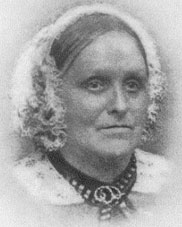Canadian literature
(Redirected from Canadian Literature)
Canadian literature refers to the body of literary works produced by authors in Canada. It encompasses a wide range of genres, including fiction, poetry, drama, and non-fiction. Canadian literature is often characterized by its reflection on the country's diverse cultural heritage, its vast and varied landscapes, and its complex social and political history.
History[edit | edit source]
The history of Canadian literature can be divided into several distinct periods:
Early Literature[edit | edit source]
The earliest forms of Canadian literature were oral traditions of the Indigenous peoples. These stories, myths, and legends were passed down through generations and are an integral part of Canada's literary heritage.
Colonial Period[edit | edit source]
During the colonial period, Canadian literature was heavily influenced by European settlers, particularly the French and British. Early written works include journals, letters, and travel narratives.
19th Century[edit | edit source]
The 19th century saw the emergence of Canadian poetry and fiction. Notable authors from this period include Susanna Moodie, who wrote about her experiences as a settler, and Thomas Chandler Haliburton, known for his humorous sketches.
20th Century[edit | edit source]
The 20th century marked a significant development in Canadian literature, with the rise of notable authors such as Lucy Maud Montgomery, author of Anne of Green Gables, and Mordecai Richler, known for his novel The Apprenticeship of Duddy Kravitz. This period also saw the emergence of Canadian modernism and the Canadian literary renaissance.
Contemporary Literature[edit | edit source]
Contemporary Canadian literature is diverse and vibrant, with authors such as Margaret Atwood, Michael Ondaatje, and Alice Munro, who won the Nobel Prize in Literature in 2013. Themes in contemporary works often explore issues of identity, multiculturalism, and the immigrant experience.
Genres[edit | edit source]
Canadian literature spans a variety of genres:
- Fiction: Canadian fiction includes novels and short stories that often explore themes of identity, landscape, and social issues.
- Poetry: Canadian poetry ranges from traditional forms to contemporary free verse, with poets like Leonard Cohen and Margaret Avison.
- Drama: Canadian drama includes works by playwrights such as George F. Walker and Michel Tremblay.
- Non-fiction: Canadian non-fiction encompasses a wide range of subjects, including history, biography, and cultural studies.
Themes[edit | edit source]
Common themes in Canadian literature include:
- Identity: Exploration of personal and national identity is a recurring theme.
- Multiculturalism: Reflecting Canada's diverse population, many works address issues of cultural diversity and integration.
- Nature and Landscape: The vast and varied Canadian landscape often plays a significant role in literature.
- Social and Political Issues: Many works address social justice, political history, and contemporary issues.
Notable Authors[edit | edit source]
Some of the most notable authors in Canadian literature include:
Related Pages[edit | edit source]
- Canadian poetry
- Canadian fiction
- Canadian drama
- Canadian non-fiction
- Indigenous literature in Canada
- French Canadian literature
- Canadian literary awards
Categories[edit | edit source]
This article is a literature-related stub. You can help WikiMD by expanding it!
Search WikiMD
Ad.Tired of being Overweight? Try W8MD's physician weight loss program.
Semaglutide (Ozempic / Wegovy and Tirzepatide (Mounjaro / Zepbound) available.
Advertise on WikiMD
|
WikiMD's Wellness Encyclopedia |
| Let Food Be Thy Medicine Medicine Thy Food - Hippocrates |
Translate this page: - East Asian
中文,
日本,
한국어,
South Asian
हिन्दी,
தமிழ்,
తెలుగు,
Urdu,
ಕನ್ನಡ,
Southeast Asian
Indonesian,
Vietnamese,
Thai,
မြန်မာဘာသာ,
বাংলা
European
español,
Deutsch,
français,
Greek,
português do Brasil,
polski,
română,
русский,
Nederlands,
norsk,
svenska,
suomi,
Italian
Middle Eastern & African
عربى,
Turkish,
Persian,
Hebrew,
Afrikaans,
isiZulu,
Kiswahili,
Other
Bulgarian,
Hungarian,
Czech,
Swedish,
മലയാളം,
मराठी,
ਪੰਜਾਬੀ,
ગુજરાતી,
Portuguese,
Ukrainian
Medical Disclaimer: WikiMD is not a substitute for professional medical advice. The information on WikiMD is provided as an information resource only, may be incorrect, outdated or misleading, and is not to be used or relied on for any diagnostic or treatment purposes. Please consult your health care provider before making any healthcare decisions or for guidance about a specific medical condition. WikiMD expressly disclaims responsibility, and shall have no liability, for any damages, loss, injury, or liability whatsoever suffered as a result of your reliance on the information contained in this site. By visiting this site you agree to the foregoing terms and conditions, which may from time to time be changed or supplemented by WikiMD. If you do not agree to the foregoing terms and conditions, you should not enter or use this site. See full disclaimer.
Credits:Most images are courtesy of Wikimedia commons, and templates, categories Wikipedia, licensed under CC BY SA or similar.
Contributors: Prab R. Tumpati, MD



